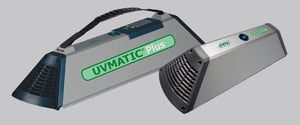
Adhering to Healthcare Standards: A Guide for Equipment Buyers
The procurement of sluice room equipment in healthcare settings is a critical process, with implications for infection control, patient safety, and regulatory compliance.
Navigating this process requires a thorough understanding of healthcare standards and how they apply to equipment selection. In this guide, we’ll offer insights for equipment buyers on adhering to these requirements, ensuring every choice supports the highest levels of hygiene and patient care.
Understanding Healthcare Standards
‘Healthcare standards’ is a general term to cover the regulations and guidelines which ensure the safety and efficacy of care environments. In the UK, these standards are set by bodies such as the Care Quality Commission (CQC), Care Inspectorate and the NHS, covering aspects from equipment safety to infection control protocols. Complying with these standards isn’t just about legal adherence; it's a commitment to the highest level of patient care.
The Role of Equipment in Meeting Standards
The right sluice room equipment plays a vital role in a facility's ability to meet and exceed healthcare guidelines.
For instance, the CQC sets out guidelines for safe, effective, compassionate, and high-quality care. This includes aspects of cleanliness and infection control in healthcare settings. Compliance with these standards can be facilitated by sluice room equipment that effectively manages and disposes of medical waste. For example, a well-maintained pulp macerator or bedpan washer disinfector will help to secure a high level of hygiene and reduce the risk of HCAIs.
Other examples might include environmental criteria, and guidelines for waste management and energy efficiency. Modern sluice room equipment often comes with energy-efficient and eco-friendly features to help meet these requirements; for instance, DDC Dolphin macerators and bedpan washers offer low water usage and energy-saving technology help facilities meet environmental standards while efficiently managing waste.
Key Considerations for Sluice Room Equipment Buyers
- Compliance with Regulations. As discussed, it's paramount to choose sluice room equipment that complies with current healthcare regulations, relevant to your region. For example, bedpan washers and macerators used in UK facilities should adhere to requirements such as HTM 07-01 (Safe Management of Healthcare Waste).
- Ease of Sanitisation. Equipment should be easy to clean and sanitise, reducing the risk of HCAIs. Look for features that simplify the cleaning process without compromising effectiveness; this, in turn, will make it far more straightforward to comply with hygiene standards. One such example would be the self-cleaning flush on DDC Dolphin’s Pulpmatic Eco+ macerator.
- Durability and Reliability. Reliable equipment reduces the risk of unexpected breakdowns and maintenance, which can compromise hygiene standards and patient safety. To gauge the reliability of potential sluice room equipment, be sure to assess the manufacturer’s reputation (through customer reviews, testimonials and case studies) and look for industry certifications which indicate that the equipment has met certain quality and safety standards. Warranty agreements can also be a good indicator of reliability (the longer the warranty, the more trust the manufacturer is likely to have in their product).
- Training and Usability. The ease of use and the availability of training materials are crucial. Equipment that is user-friendly and supported by comprehensive training resources ensures that staff can adhere to proper usage protocols, maintaining compliance.
Evaluating and Selecting the Right Suppliers
The choice of supplier is as important as the equipment itself. Reputable suppliers not only provide high-quality, compliant equipment but also offer ongoing support and advice. They should demonstrate a clear understanding of healthcare standards and be proactive in keeping their products and services aligned with the latest regulations.
Your chosen supplier should be well-versed with regulations such as HTM standards, CQC requirements, and any other relevant local or national guidelines. All the while, their products should consistently adhere to these standards to ensure that your facility remains compliant.
Of course, the role of a good supplier doesn’t end with the sale of equipment. Post-sale support - including regular maintenance services, equipment upgrades, and prompt responses to repair needs - is crucial. This ongoing support is vital in ensuring that the equipment continues to operate effectively and in compliance with evolving healthcare standards.

Integrating Equipment into Healthcare Practices
Once the appropriate equipment is selected, it’s essential to blend it seamlessly into existing healthcare practices.
This involves:
- Staff Training. Ensuring all relevant staff are thoroughly trained in the operation and maintenance of the new equipment will help to ensure that it’s used as intended.
- Regular Audits. Conducting regular audits can confirm the equipment is being employed correctly and is maintaining the necessary hygiene standards.
- Feedback Loops. Establishing channels for staff to report issues or provide feedback on equipment usage will foster continuous improvement, so you can keep your facility’s standards high.
Selecting the right sluice room equipment, compliant with healthcare standards, is a crucial step in maintaining a safe and efficient healthcare environment.
From understanding the regulations to evaluating equipment and choosing the right suppliers, facilities can ensure they not only comply with regulations but also uphold the highest standards of patient care.








